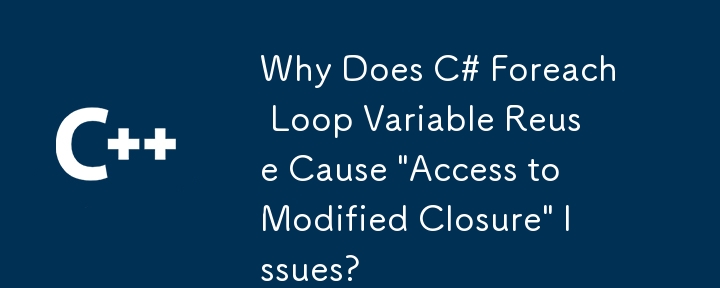

C# foreach Loop Variable Reuse: Problems and Solutions
C# lambda expressions and anonymous methods introduce the "modified closure" problem within foreach loops. Consider this example:
foreach (var s in strings)
{
query = query.Where(i => i.Prop == s); // Modified closure issue
...
}The compiler's generated code reveals the root of the problem:
string s;
while (enumerator.MoveNext())
{
s = enumerator.Current;
...
}The s variable is declared outside the loop. This design, while seemingly innocuous initially, creates issues. It offers no performance advantage and restricts variable usage outside the loop.
Why This Design?
This variable reuse was a design choice in early C# (1.0). The difference between an inner and outer variable was deemed insignificant. However, C# 2.0's closure semantics changed this. Maintaining consistency with for loops, the loop variable was placed outside.
Changes in C# 5 and Later
Recognizing the flaws, C# 5 introduced a breaking change: the foreach loop variable is now logically inside the loop's body. Each iteration gets a fresh copy.
This solves the "modified closure" problem, making the older method unsafe. It also highlights the importance of careful var keyword usage, particularly with lambdas or anonymous methods in foreach loops.
The above is the detailed content of Why Does C# Foreach Loop Variable Reuse Cause 'Access to Modified Closure' Issues?. For more information, please follow other related articles on the PHP Chinese website!




